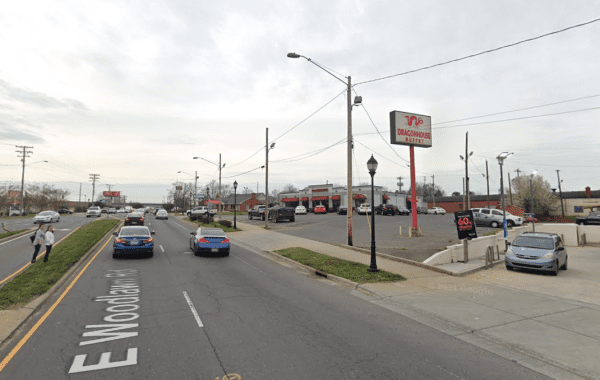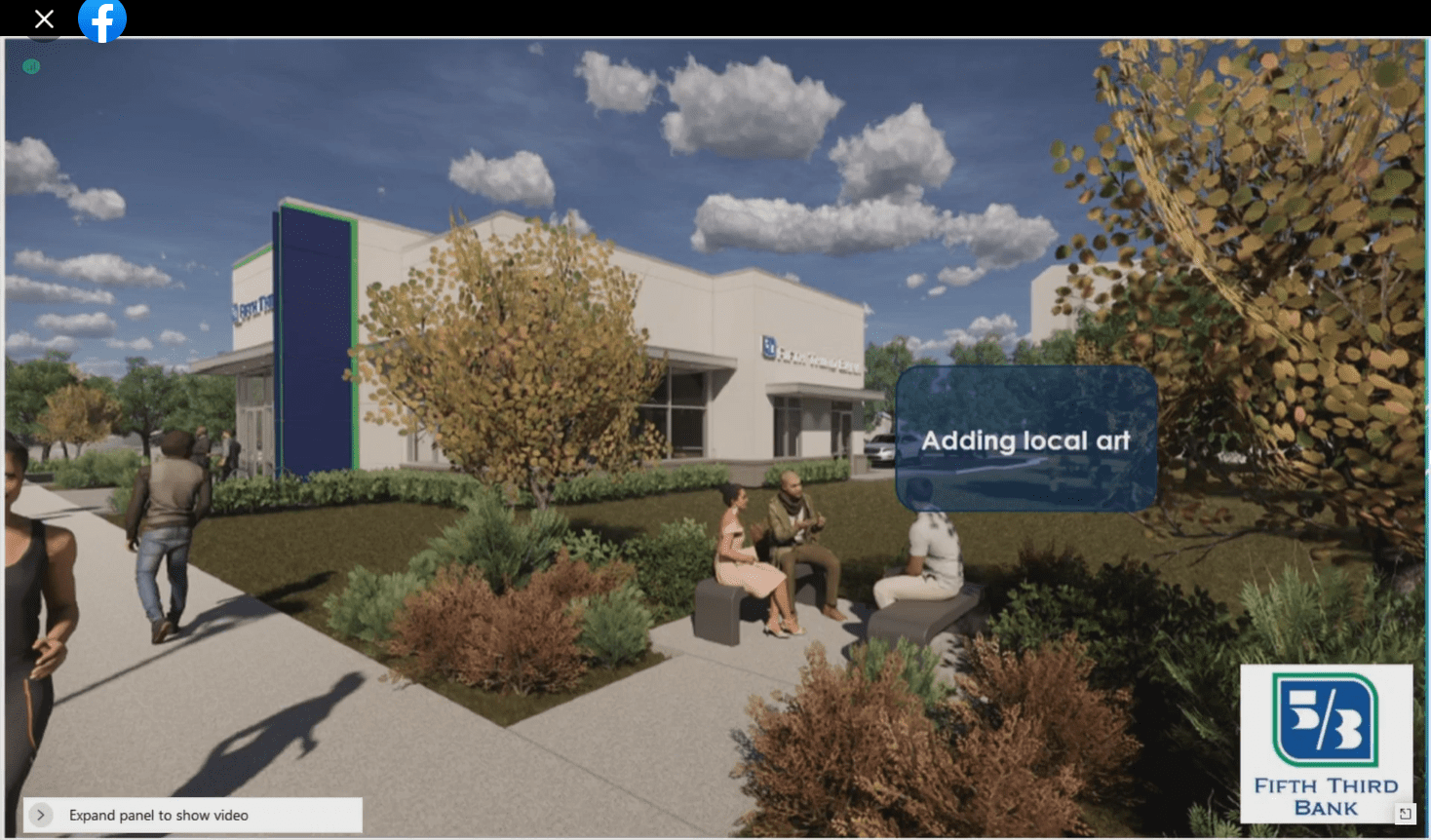More drive-thrus near the light rail? City decisions worry advocates

Charlotte City Council on Tuesday approved two auto-centric developments in transit-oriented zones along the Blue Line light rail, a move some advocates fear will set a bad precedent as the city tries to move away from its dominant car culture.
The developments — a Fifth Third Bank on Woodlawn Road with a drive-thru and a Chick-fil-A on South Boulevard near Interstate 485 — both won rezonings to allow them to include drive-thrus near the light rail, where drive-thrus otherwise wouldn’t be allowed.
At this point, you might be asking yourself: What’s the big deal about a fast food restaurant and a bank branch with drive-thrus in a city that’s already swimming in them? Both of the developments are along the Blue Line, sure, but you’d be hard-pressed to describe either location as any kind of oasis of walkability as-is.
But advocates who’ve pushed for the city to focus more on walking, biking and transit are worried that allowing new, car-centered developments in Charlotte’s only true rail corridor will undermine Charlotte’s future.
In 2019, City Council approved new transit-oriented development zoning rules and switched almost 2,000 parcels of land along the Blue Line to those designations. It was a preemptive attempt to make sure that developers didn’t flood the Blue Line corridor with more car washes, gas stations, self-storage facilities with big parking lots and other car-centered uses (as had already happened along much of the light rail’s route since the first leg opened in 2007).
[Drive-thrus, zoning and walkability rules]
By allowing exceptions to those rules and permitting drive-thrus, the city is signalling that it’s willing to give developers more leeway, rather than adhering to the stricter transit-oriented development regulations.
“This petition may seem insignificant but how you vote on it will send a message to the community as to whether we will honor our existing policies and plans for which they gave their input or if we will continue to be a ‘deal-making city’ where we make deals that move us away from our adopted plans and policy goal,” wrote Shannon Binns, founder and executive director of Sustain Charlotte, in a message to City Council opposing the Fifth Third petition.
“Allowing drive-throughs in these areas is not only counter to your adopted plans and policies, but it would also create a dangerous precedent that would encourage other landowners to request the same exemption,” wrote Binns. After the votes, Sustain Charlotte said in a statement that the group was disappointed in the outcome.

A rendering of the proposed bank branch on Woodlawn, showing pedestrian amenities. Charlotte City Council presentation.
The City Council’s decision also comes as Charlotte is finalizing its new development rules, the Unified Development Ordinance. This set of rules will combine zoning, subdivision, tree, stormwater and a half-dozen other disparate development regulations into a single document.
A key selling point for streamlining, modernizing and combining the city’s development regulations is to avoid the ad hoc, case-by-case decisions on rezoning requests that have become the norm under the current system. Instead, land use decisions would be made by going by the streamlined rules on the books. But the drive-thru exceptions this week raise concerns that the “deal-making” culture of ad hoc development approvals and denials won’t go away with Charlotte’s new rules.
Both Chick-fil-A and Fifth Third pointed to greater customer demand for drive-thrus during the pandemic as justification for building more drive-thrus. Chick-fil-A (along with Bojangles) is also seeking to build more drive-thru-only restaurants, with no indoor seating, in other parts of the city to meet people’s changing preferences. The Chick-fil-A on South Boulevard will be replacing an existing Chick-fil-A, and city planners said the new design — while including a bigger drive-thru — will be more pedestrian-friendly because it reorients the building to the street. And the Fifth Third branch will replace a closed Chinese restaurant, bringing jobs and services to the neighborhood.
City Council members were swayed by those arguments, as well as Fifth Third’s promises to include public art. Council members also said they worried the area around Woodlawn Road and South Boulevard is a “banking desert” that economically disadvantages residents.
Council member Braxton Winston, who voted no, pointed out that Fifth Third had said it would still build the bank branch even if the city didn’t allow them to build a drive-thru.
“I think this sets a bit of a snowball down the hill, a bad precedent for transit-oriented development,” said Winston, who also voted against the Chick-fil-A rezoning.
Council member Greg Phipps, who joined Winston in voting against the Fifth Third rezoning, said the city risks undercutting its previous work in requiring more transit-oriented, less auto-centric development along the Blue Line.
“We spent a lot of time vetting these TOD (transit-oriented development) designations, and I would like to retain the integrity of those,” said Phipps.
But council member Dimple Ajmera, who voted for both rezonings, said the council’s previously approved plans around transit-oriented zoning shouldn’t be seen as absolutely binding in all cases.
“I know we’ve gotten some emails about, ‘Hey, you guys approved the plan, and now you’re amending and you’re making changes,’ so I just want to clarify that all the petitions we approve, it’s on a case-by-case basis,” she said.